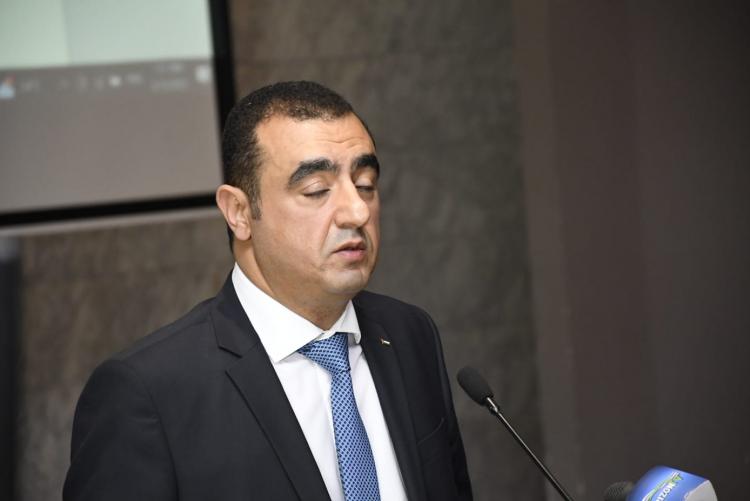Geopolitics of Middle-East: Palestine, Israel Conflict roots and prospects
The conflict between Israel and Palestine has always caused tension within the international system, and is a delicate topic that would need careful measure in order to come to a long-term solution. On the 5th of May, 2023 the University of Nairobi (UoN), Faculty of Arts and Social Sciences, Department of International Studies and Diplomacy hosted H.E. Hazem Shabat, Palestine Ambassador to Kenya. H.E. Hazam, gave a public lecture at Chandaria auditorium discussing ‘Geopolitics of Middle-East: Palestine, Israel Conflict root and prospects.’
The hybrid event attracted the likes of students, staff, academic experts, lectures and diplomats, who came together to discuss the ways in which the future of the Israel-Palestine relations and to deduce the root cause.
The Chairperson, Department of International Studies and Diplomacy (IDIS), Dr. Patrick Maluki delivered welcoming remarks to all present giving a short introduction on the university and the department. He thanked the Dean faculty of Arts and Social Sciences (FASS), Prof. Jack Odhiambo for the support. Dr. Maluki emphasised the importance of such relationships to the university. “I wish to encourage more future collaborations between the embassy of Palestine and UoN, and to increase more student internships and visits for students in the IDIS department.”
During this public lecture, Prof. Jack Odiambo, Dean, (FASS) represented the vice chancellor, Prof. Stephen Kiama. In his speech, he highlighted the importance that such forums held for UoN students as it gives them another avenue to gather and acquire knowledge outside the classroom. He added that, “Your presence highlights the values of collaboration initiating the future of learning and education. UoN is committed to strengthening academia and industries.”
H.E. Hazem Shabat kicked off his interactive and engaging public lecture by extending a hand of gratitude to the university and its management and all those involved in making this great lecture possible. Amb. Shabat expressed his wishes to also encourage more UoN student visits and collaboration with the Palestine Embassy, to further allow them to achieve all their academic qualifications.
As part of his presentation, H.E Shabat used a series of scholarly books and research findings to look back at the timeline of historical highlights of Israel using references of biblical timeline to study the migration of the Jews and their settlement in Israel. Amb. Shabat took the audience through consideration of more than just the effect of geopolitics in reference to the Palestine-Israel conflict, but he urged them to also look at the socio-political aspects such as ‘Ethnicity vs Faith’ Furthermore, looking into the migration patterns of Israel and Palestine.
Amb. Shabat concluded his lecture by highlighting the importance that the settlement of the Jewish people during the earlier centuries was crucial in what would become Israel. Some of the key settlements he highlighted included; The Nazis and the Jew: The Madagascar plan, Beta Israel, Uganda Scheme and The notorious Sykes–Picot Agreement.
The public lecture concluded with a Q n A session between Amb. Shabbat and the audience discussing ‘Is it possible to resolve the conflict, or should we look more towards management.’ as well as ‘What does the future look like for Palestine?’

